What is Salesforce?
A strategic platform for growth, intelligence, and integration
For businesses navigating digital transformation, operational efficiency begins with the ability to connect data, teams, and processes in real time. That’s where Salesforce stands out—a powerful platform designed to turn data into decisions and customers into long-term relationships.
Salesforce is more than just CRM (Customer Relationship Management). It’s a smart, scalable ecosystem that blends CRM and ERP functionalities to automate workflows, connect departments, and drive results for companies of all sizes. With built-in AI, native RPA tools, and a cloud-based architecture, it supports enterprise agility and future-ready strategies.
AI-driven customer expectations demand more
According to Salesforce’s 7th edition of the State of the AI Connected Customer report, customer expectations are rapidly evolving:
-
Only 42% of customers trust companies to use AI ethically—down from 58% the year before.
-
71% want to know when they’re interacting with an AI agent, and
-
61% say that advances in AI increase the importance of trusting companies.
This moment requires more than traditional CRM—it demands ethical automation, personalized AI experiences, and real-time decision-making capabilities. Salesforce delivers all three, empowering businesses to lead with transparency and intelligence.
What is CRM?
Customer relationship management (CRM) refers to a set of practices, strategies, and technologies that companies use to manage and analyze interactions with current and potential customers. The main goal is to strengthen customer relationships, support retention, and drive sales growth. A CRM system centralizes customer information, automates marketing, sales, and service processes, and enables efficient communication across teams, ensuring a 360-degree view of the customer.
Salesforce: Beyond CRM
Salesforce functions as a digital hub where businesses manage customer relationships, automate repetitive tasks, gain data-driven insights, and scale operations securely.
-
Sales Cloud helps sales teams track pipelines, forecast revenue, and collaborate with marketing and service.
-
Service Cloud enables personalized, AI-powered customer support.
-
Marketing Cloud drives omnichannel engagement with automated digital campaigns, allowing personalized interactions with clients across various channels.
-
Commerce Cloud connects B2C and B2B commerce across channels, linking order management and payments with sales and marketing.
Is Salesforce an ERP?
Salesforce isn’t a traditional ERP, but it’s evolved into a customizable platform that integrates ERP-like functions—finance data management, order flows, service processes, marketing, contracts, and operations—through native modules and API-based integrations.
Rather than replacing legacy ERP systems, Salesforce acts as a centralized data orchestrator, bridging systems and teams to enable real-time access to information. That flexibility makes it ideal for businesses undergoing digital transformation.
Why strategic integration matters
-
Centralized data: Sales, marketing, service, and operations data in one secure cloud platform
-
RPA automation: Replace manual tasks with rule-based flows and intelligent bots
-
Data-driven decisions: Real-time dashboards deliver actionable performance insights
-
Scalability: Cloud architecture supports rapid growth without extra infrastructure
RPA + Salesforce: Automation in Action
As automation becomes essential, Salesforce offers native RPA (Robotic Process Automation) to streamline rule-based tasks such as:
-
Record and customer profile updates
-
Order processing
-
Report generation
-
Ticket management
-
Cross-system approval flows
Salesforce’s acquisition of German RPA company Servicetrace and integration with MuleSoft means intelligent automation is now embedded across APIs, legacy systems, and the Salesforce Data Cloud.
Benefits of Salesforce RPA:
-
Quick productivity wins with minimal infrastructure change
-
Modular bot deployment for agile scaling
-
Full operational traceability and security
-
Custom automation using AI, APIs, and business rules
AI Built into Salesforce: Meet Einstein
Salesforce Einstein is the platform’s built-in AI layer, delivering:
-
Predictive analytics using machine learning to forecast trends
-
Natural Language Processing (NLP) to classify customer intent and analyze sentiment
-
Computer vision for image recognition and unstructured data analysis
What’s New: Agentforce and the Future of Autonomous AI
In late 2024, Salesforce introduced Agentforce, a generative AI-powered suite of autonomous agents that operate without human intervention. These agents automate tasks in customer service, sales, marketing, HR, and IT—24/7.
Built on the Atlas Reasoning Engine, Agentforce agents understand context, make decisions, and evolve in real time. Through a no-code Agent Builder, businesses can create and test agents using natural language before deployment.
Agentforce Capabilities:
-
Qualify leads, schedule meetings, and manage tickets
-
Interact via Slack, email, web, WhatsApp, and more
-
Scale intelligent workflows with prebuilt agent skills (v2.0 release)
-
Increase operational accuracy and reduce bottlenecks
Strategic Partnerships and Market Impact
Salesforce’s partnership with McKinsey & Company accelerates the adoption of safe, high-impact generative AI across sectors. This collaboration merges Salesforce CRM tech with McKinsey’s AI and data strategy expertise, helping businesses deploy secure, personalized AI tools.
Analysts forecast that Salesforce’s AI innovations will generate over $4 billion in additional annual revenue starting in 2025—underscoring the platform’s alignment with enterprise needs and its future-forward positioning.
Meta IT: Official Salesforce Partner
As an official Salesforce Partner, Meta IT delivers full-spectrum services to businesses looking to scale with Salesforce.
Our Services:
-
Strategic Consulting: Process analysis to align Salesforce with your KPIs
-
Implementation & Integration: Seamless setup, system integration, and customization
-
Training & Support: Empower your teams and ensure long-term value
Ready to transform your business with Salesforce?
Meta IT helps companies unlock the full power of automation, AI, and customer experience with Salesforce.
Schedule a call to explore our customized Salesforce solutions.
Salesforce FAQ
What is Salesforce?
Salesforce is a cloud-based CRM platform that offers solutions for sales, marketing, service, automation, and analytics—helping businesses manage and grow customer relationships.
What are Salesforce’s core products?
Sales Cloud, Service Cloud, Marketing Cloud, Commerce Cloud, Tableau (analytics), Slack (collaboration), and AI platforms like Einstein and Agentforce.
Who should use Salesforce?
Salesforce serves startups to Fortune 500 companies across industries—retail, financial services, healthcare, manufacturing, and tech—with scalable, industry-specific solutions.
What is Agentforce?
Agentforce is Salesforce’s next-gen AI platform featuring autonomous agents that automate complex business tasks in real time across multiple departments.
What’s the difference between Einstein and Agentforce?
Einstein powers predictive insights and analytics. Agentforce goes further, enabling autonomous task execution with generative AI and contextual reasoning.

